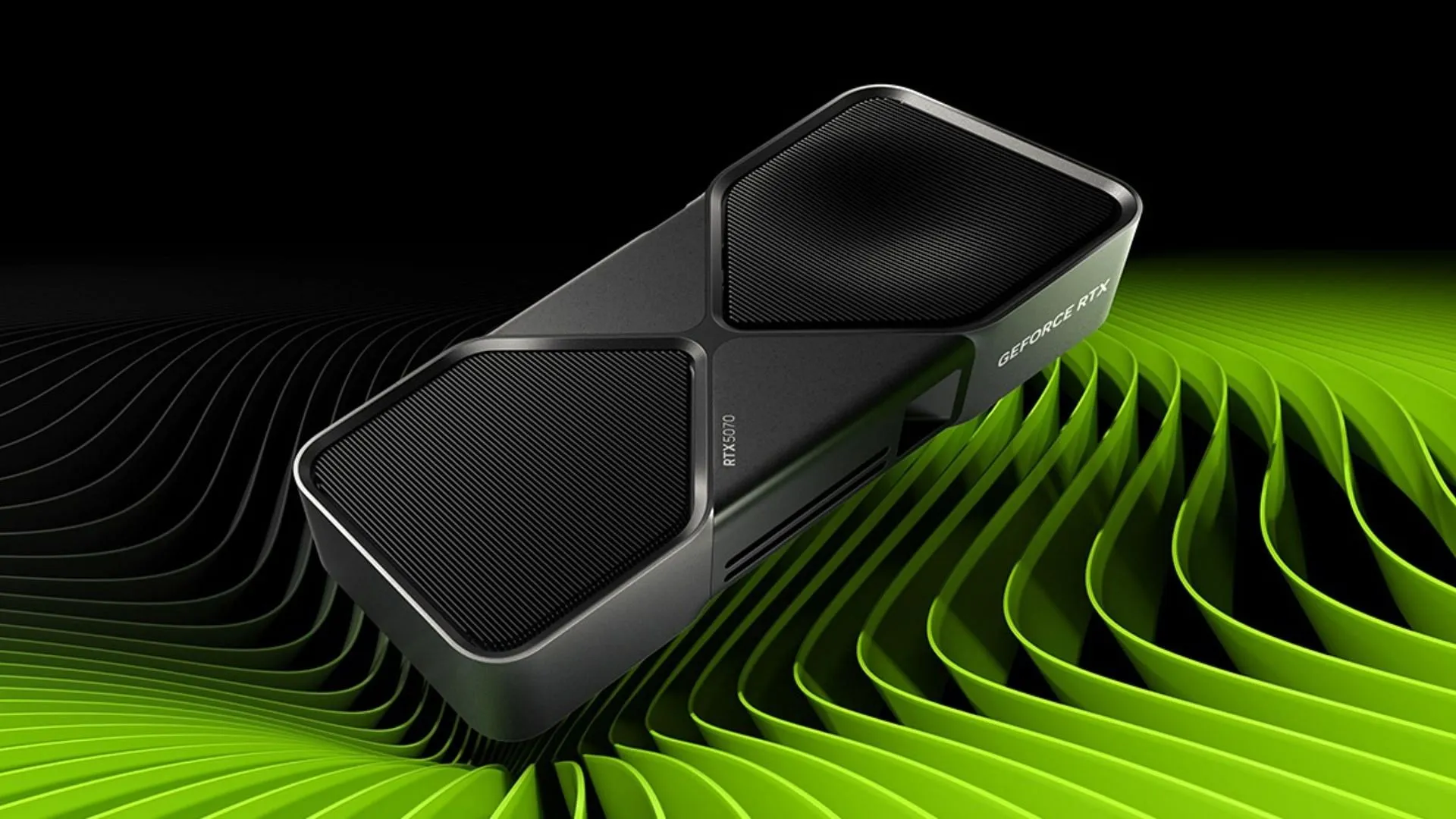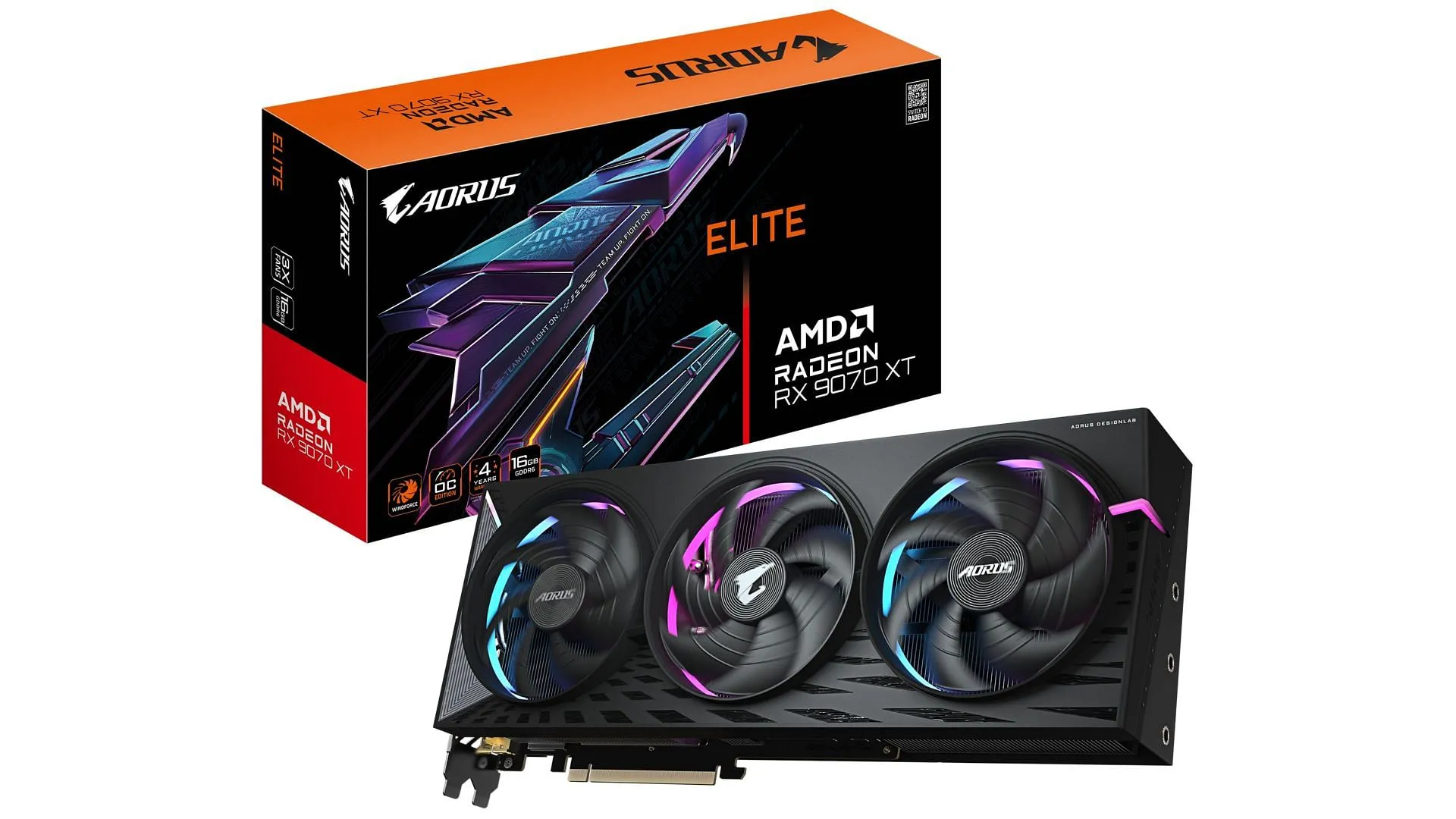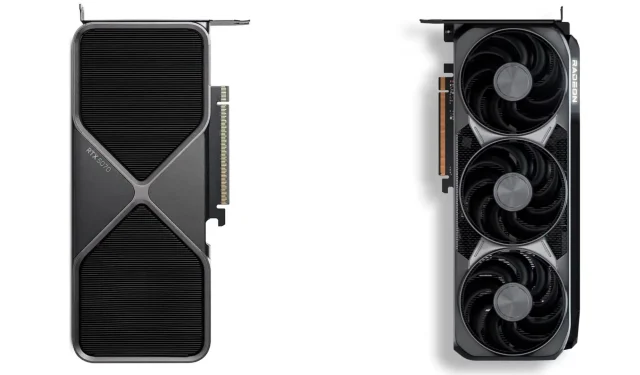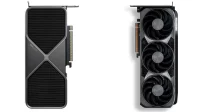The Nvidia RTX 5070 and AMD Radeon RX 9070 XT are top-tier graphics cards specifically engineered for an optimal 1440p gaming experience. Both GPUs are packed with cutting-edge technology, including advanced hardware components and AI-driven upscaling capabilities, positioning them as prime contenders in the midrange market. However, selecting between Nvidia and AMD can pose a challenge this generation due to their competitive offerings.
In this article, we will explore the specifications and performance distinctions between these two graphics powerhouses. Let’s take a closer look at the relative advantages of each 70-class card.
High-End Performance for 1440p Gaming

Both the RTX 5070 and RX 9070 XT are tailored for incredible QHD gaming experiences. Interestingly, they also manage to perform adequately at 4K resolutions, although gameplay may suffer in more demanding titles, particularly when ray tracing is activated. Casual gamers are likely to enjoy a seamless experience across both resolutions.
Specifications Breakdown
When examining technical specifications, both GPUs boast impressive hardware. Yet, their distinct architectures create a noticeable gap in their performance profiles. The Nvidia RTX 5070 leverages the Blackwell architecture, which is optimized for efficiency and enhanced AI capabilities. In contrast, the AMD Radeon RX 9070 XT utilizes the cutting-edge RDNA 4 architecture, delivering superior performance through higher hardware specifications.
The RTX 5070 is equipped with 6,144 CUDA cores and features 12 GB of GDDR7 VRAM. While this configuration is commendable, the limited buffer and bus width can hinder performance in certain scenarios.
By comparison, the RX 9070 XT stands as AMD’s flagship model for the moment, boasting 4,096 shaders and the newly minted Navi 48 XTX graphics processor. It significantly outperforms its predecessor, the RX 7700 XT, although it does not quite reach the performance levels of the RX 7900 XTX.
Side-by-Side Specs Comparison
| Specification | NVIDIA GeForce RTX 5070 | AMD Radeon RX 9070 XT |
| Architecture | Blackwell | RDNA 4 |
| CUDA Cores / Shaders | 6,144 CUDA Cores | 4,096 Shaders |
| Base Clock Speed | 2,325 MHz | 2,400 MHz |
| Boost Clock Speed | 2,512 MHz | 2,970 MHz |
| Memory Type | GDDR7 | GDDR6 |
| Memory Capacity | 12 GB | 16 GB |
| Memory Bus Width | 192-bit | 256-bit |
| Memory Bandwidth | 672 GB/s | 644 GB/s |
| Ray Tracing Cores | 48 | 64 |
| Tensor Cores / AI Accelerators | 192 | 128 |
| TDP (Power Consumption) | 250W | 304W |
In terms of pricing, the Nvidia RTX 5070 has a starting MSRP of $549, while the AMD Radeon RX 9070 XT comes in at $599. Nonetheless, the actual market prices are often significantly higher than these suggested retail prices.
Comparative Performance Metrics

Performance is critical for gamers when choosing a GPU. Both cards deliver sufficient rendering capabilities suitable for the latest game releases. However, the performance gap can be stark, with the RX 9070 XT often performing better in real-world scenarios due to specific hardware advantages.
The following table provides performance benchmarks sourced from the YouTube channel Testing Games, showcasing frame rates across various titles:
| Nvidia RTX 5070 | AMD Radeon RX 9070 XT | |
| Alan Wake 2 | 35 FPS | 44 FPS |
| Forza Horizon 5 | 139 FPS | 195 FPS |
| Red Dead Redemption 2 | 114 FPS | 145 FPS |
| S.T.A.L.K.E.R. 2 | 64 FPS | 75 FPS |
| Ghost of Tsushima | 72 FPS | 106 FPS |
| Cyberpunk 2077 | 90 FPS | 113 FPS |
| Cyberpunk 2077 w/ RT | 45 FPS | 52 FPS |
| Horizon Forbidden West | 94 FPS | 125 FPS |
| Kingdom Come: Deliverance 2 | 69 FPS | 69 FPS |
| Black Myth: Wukong | 45 FPS | 51 FPS |
| God of War: Ragnarok | 110 FPS | 150 FPS |
On average, the AMD Radeon RX 9070 XT outpaces the Nvidia GPU by approximately 25.67% in terms of performance. This significant difference justifies the $50 premium, provided the prices align with MSRP during purchase.
Breaking it down further, the RX 9070 XT achieves frame rates that are 47.22% higher in Ghost of Tsushima, 40.29% faster in Forza Horizon 5, and 36.36% quicker in God of War: Ragnarok. Such figures indicate a clear advantage for AMD, especially for gamers looking for longevity in their hardware investment.
In summary, the AMD Radeon RX 9070 XT presents a compelling choice over the Nvidia RTX 5070. While it is priced $50 higher, the performance benefits make it a worthwhile consideration for gamers. If budget constraints are a factor, however, the RX 9070 may serve as a more affordable option. As of this writing, neither GPU is available at MSRP, but the RTX 5070 is often cheaper on platforms like Amazon and Best Buy.


